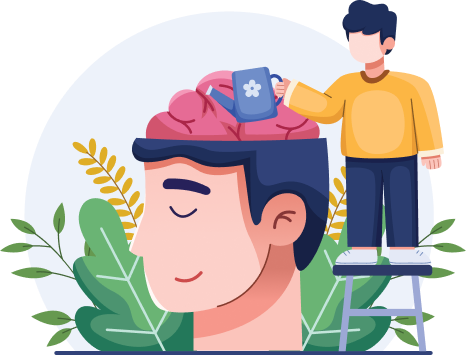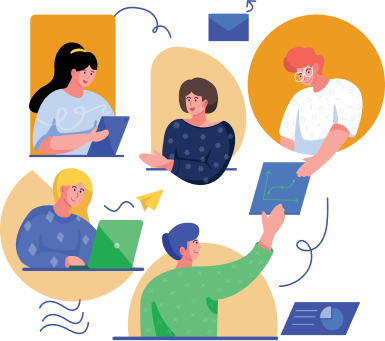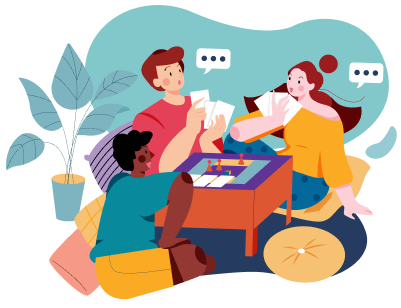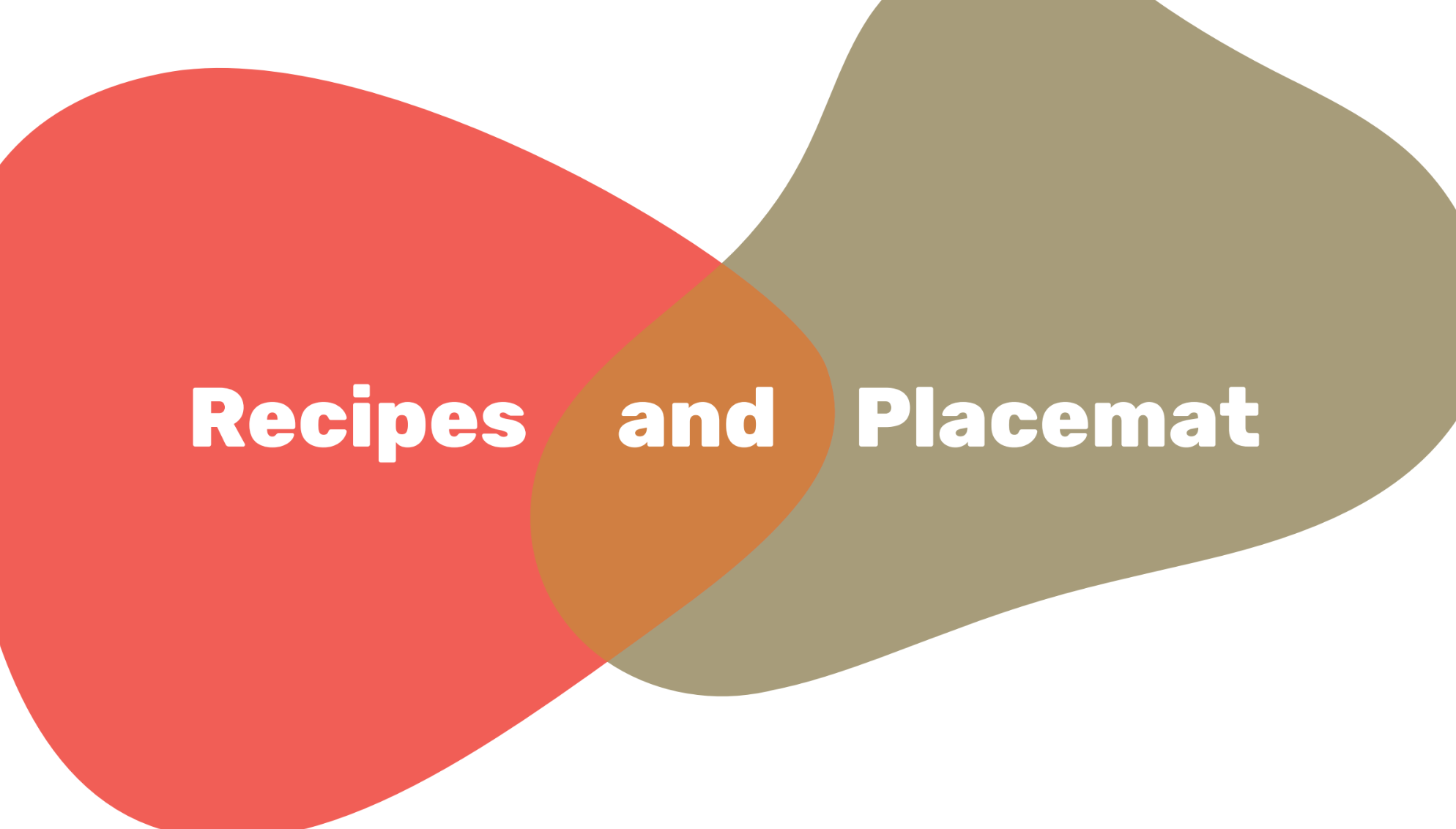
Cooking Up Meaningful Sessions with “Recipes”
In the Nourishing Minds program, cards are combined into “recipes” that guide each session.

Start by identifying your goals—building trust, sparking creativity, or encouraging reflection—and select cards from different categories to achieve them

Recipes are divided into three levels of complexity, letting you and your group progress as you build confidence.

Adjust the recipe as needed to suit your group’s unique needs.
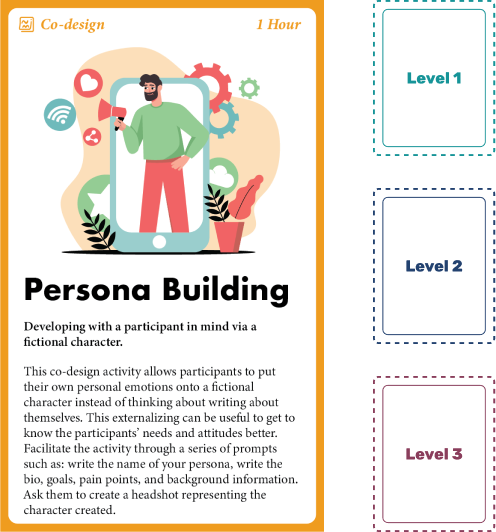
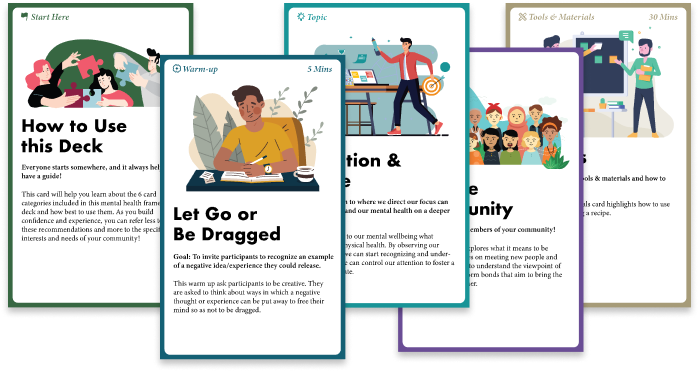
Each recipe combines a warm up, discussion topic, and co-design activity along with considerations for the tools and materials needed to make that recipe happen. The goal is to create sessions that resonate with teens, encouraging them to open up, reflect, and connect with you and one another. Building recipes, with the help of the placemat, is what session planning is all about.
The Placemat Shapes Each Recipe
The “placemat” is a great visual aid that helps you to choose the right types of cards for your recipes. It helps you organize each recipe into a balanced, step-by-step experience. The placemat is divided into three levels. Choose the right level of complexity and engagement based on the needs of your group. As the group grows more comfortable and confident, you can “graduate” up to the next level, adding more depth and room for possibilities in your sessions.
BASIC
A beginner-friendly layout that establishes a welcoming, open environment. Level 1 includes categories like Warm-Up, Topic, Tools & Materials, and Co-Design, focusing on building trust and introducing foundational concepts.
OPPORTUNITY
Adds an Opportunity card to encourage positive self-expression and explore broader perspectives, deepening the conversations while remaining approachable.
CONSTRAINT
The most advanced level, adding a Constraint card to introduce real-world challenges and foster critical thinking, helping teens engage with mental health topics in a more nuanced way.
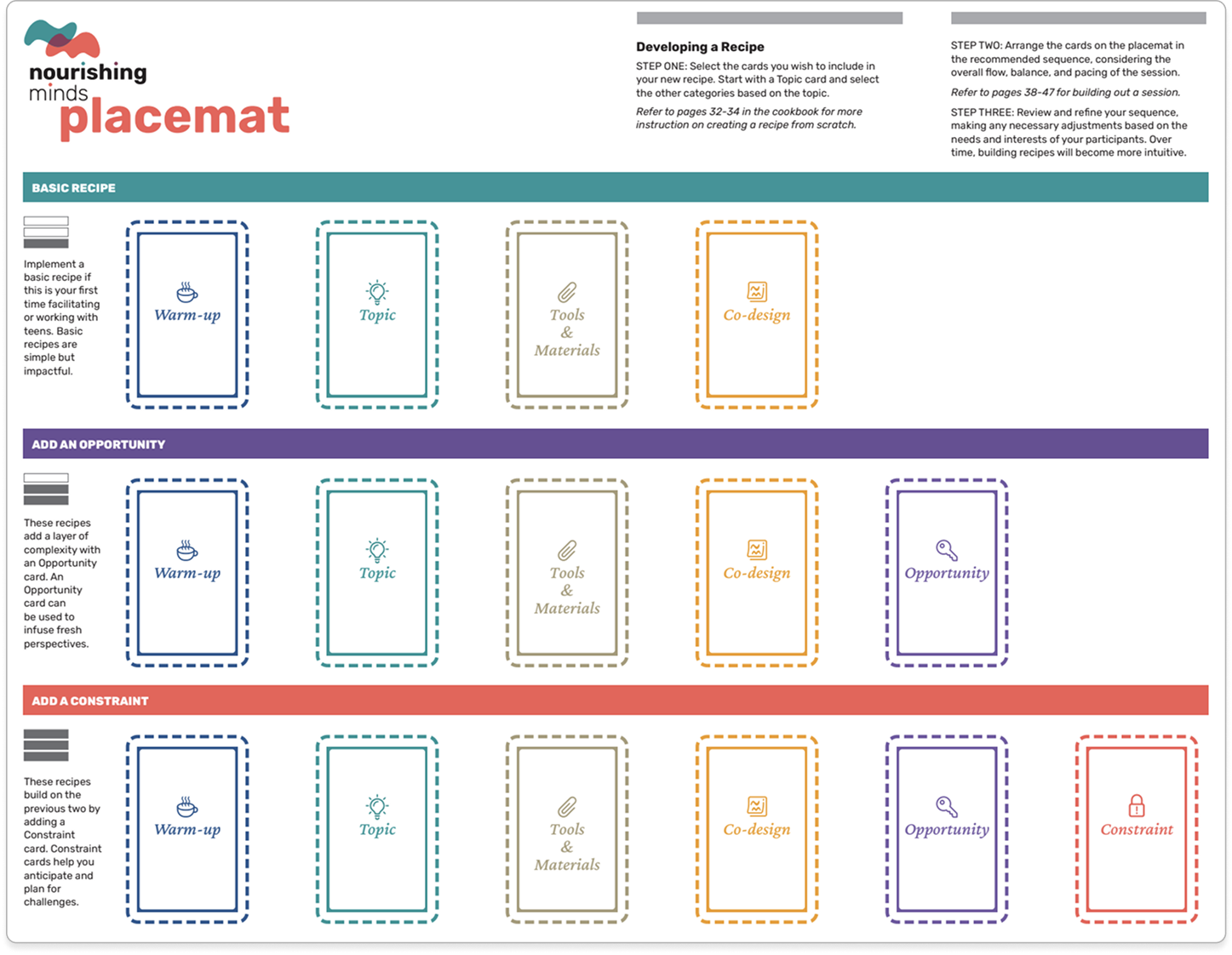
Recipe Structure and Flexibility

Warm-up
Sets the stage, helping everyone relax and focus.

Topic
Defines the session’s main theme, guiding the conversation’s direction.

Tools & Materials
Lists any resources or items needed to support the activities.

Co-Design
Engages teens in creative challenges, making them active participants in the session.

Opportunity
Highlights positive aspects or benefits, fostering a constructive outlook.

Constraint
(Level 3 only) Introduces real-world limitations to prompt creative problem-solving.
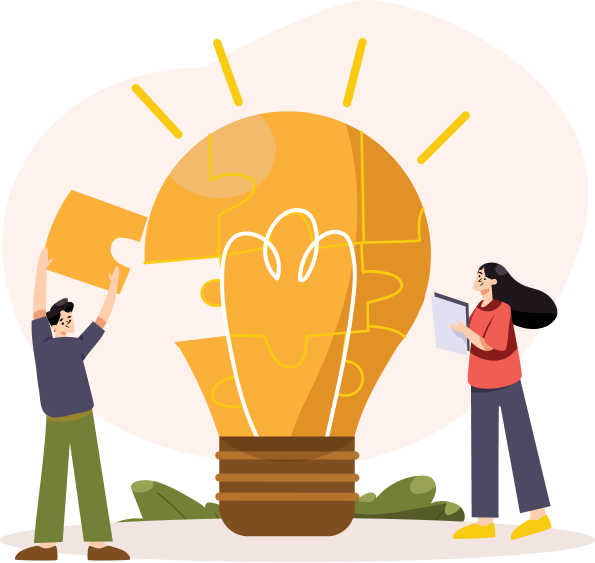
Does my group NEED to achieve Level 3?
Not at all. Higher levels are designed to unlock new possibilities for your group, but go at your own pace. Connecting with the activities and with each other is more important than a well-intentioned but frantic rush toward level 3. You’ll know when your group is ready to level up.
Let’s do this!
Ready to work with teens to strengthen their mental health skills? We’ve created the tools that will walk your library through the program step-by-step.
